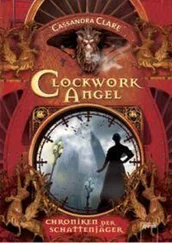There would be no answers to these questions in meditation, he knew, so he strode away from the shrine and made his way to the root cellar. Four men with heavy guns were posted outside the door, who refused to allow him in without an escort. Vegar relented after a brief exchange, and two of the guards accompanied him inside. Akhila was motionless as he dreamed she would be, sitting cross-legged on the cellar’s work bench, still naked as she had been the previous day. Her eyes opened, and a faint, blue light shone from them, the only light in the room.
* * *
“Hello, Brother Vegar. How are your burns?” Akhila heat-scanned his chest and arms as he closed the door. The flow of blood to his wounds was good. He was probably in pain, but he would heal.
“Why were you so angry with me? What don’t I know?”
She smiled. “You’re awfully brave to be so naive in mixed company.”
“I didn’t come here for you to insult me.” Vegar turned to go and put his hand on the doorknob.
“I’m sorry,” she said, but a hint of humor remained in her voice. “I shouldn’t provoke you. It was good of you to ask at all.”
His hand remained on the door, but he looked in her direction again. Her scent receptors registered nervous sweat, the medicine on his burns and the stale residue of burned incense. It was a pleasant counterpoint to the gunmetal stink of the guards’ weaponry, so she allowed herself a moment to soak it in. While she did, she thought about making conversation, perhaps asking about his faith. But then she remembered what she had shown him and what he had said to her.
“It started with gills,” she finally said, “so people could mine in deep water without suits. Prisoners got early parole; people dependent on their governments got bigger stipends, and all they had to do was change a little and learn a new skill…”
Vegar interrupted her. “Those people were volunteers…”
Akhila raised an eyebrow and spoke over him. “Most of them died on the bottom of the ocean and were forgotten by everyone but their families, who were offered new opportunities on new worlds. Why go to the expense of terraforming a planet with skilled workers when you can augment criminals and the poor at a fraction of the cost? So gills became chemicals or genetic alterations for breathing hostile atmospheres. Sometimes skin became scales or even better, self-replicating body armor. It’s amazing what you can do to flesh when you don’t care whether or not it survives for very long.”
“What does any of this have to do with your war?” Vegar’s heart rate increased, and she heard his breath grow shallow. Good. She was making him angry. Maybe she could make him think as well.
“Did you know that drowning is a terrible way to die? You can’t hold your breath until you pass out; your body will force you to inhale eventually. So you breathe in water knowing it will kill you, but it takes a minute or two for you to lose consciousness. Chemical burns are bad too; they linger on the body, and no amount of medicine can make it easier to look in a mirror.”
“I don’t support any of that, and I’m sure the little boy you destroyed had no idea it was happening at all.”
“Of course you support it. This is a terraformed moon, and you’re living on it without any regard to the people who made it habitable.”
“But why children?” He was shouting now.
“Yes, Vegar. Why children? Is it because they’re easier to augment? Is it because they fit into smaller spaces? Is it because a child’s mind is as malleable as her body is?”
“I’m just a monk. I haven’t hurt anyone.”
“You’re a…” She paused, chose a word from his argument with Sigurd, “… murderer. At least I have the grace to get my hands dirty.”
“You’ve butchered entire worlds full of people!”
“Who refuse to tell the truth when they know it and refuse to listen when they hear it. Who are living on the bones of other people who died to put them there. Who will never have to run out of oxygen or water or food or wonder what kind of abomination they’ll turn into if the augmentation fails. Who’ve never had to sell one daughter’s mind to pay for another daughter’s medicine. And I will keep on killing them, every one of them, every man, woman and child of them until you stop it, stop it, stop it!”
Akhila heard the guards cock their weapons and realized she was standing on the table. Her body glowed a faint blue in the darkness. She shuddered once and slumped into a seated position again. “Oh, Vegar.” She began to rock back and forth, her arms wrapped around her belly. “Help me.”
But the guards were already escorting him out.
Some time later, the door opened again and Sigurd entered the cellar alone. He was wearing the same expression he had worn on the hillside and carrying one of the weapons he had brought there. He strode over to her as the door closed behind him and shoved it under her chin. She didn’t move to stop him.
“Do not speak to the boy again,” he growled, “or I will melt your nanobody slowly, over a period of hours, while you beg me for your life.”
“Father Sigurd, where have you seen a radical augment before, and what did it do to you?” She ignored the gun.
He picked her up by the throat and threw her against the dirt wall of the cellar. Gravel and soil crumbled around her. Again, she didn’t struggle but rose to her feet in a single, fluid motion as he crammed his fingers into her mouth and gripped her jaw.
“You are not allowed to call me ‘Father.’ I’ll kill you for that, too. I should kill you for that now.” He wasn’t shouting anymore, but his body was shaking, and his breath hissed in and out over his teeth.
Akhila remained calm. She had come to this moon seeking death and was not afraid to meet it. Her mouth peeled back from his fingers and rematerialized beside them. “For whatever it was, and for whoever did it, I am profoundly sorry. I invite you to do to me whatever you believe is just in order to avenge your loss.”
Sigurd’s eyes misted then, and he looked away from her. When he spoke, his voice was thick with emotion. “It wasn’t a ‘who’, and neither are you.” His barrel chest heaved. “Leave the boy alone,” he repeated, leaning on the door and stumbling out into the afternoon sunshine.
Akhila sat in darkness for the next day, a slender nanofilament extending outward from her body, through the micro-cracks at the base of the cellar door and up into the grass. It didn’t collect much sun, but if she was still, it was enough. At the end of that time, she had sufficient power to stretch the nanofilament farther, make it longer, and escape the cellar altogether without attracting the attention of the guards.
She spent the rest of the afternoon draped over the metal roof of the monastery like frost on a window, glinting in the early winter sun. After planet rise, when all was quiet, she slid down from the roof and went walking in the arboretum.
* * *
Vegar stood at the edge of a sand sculpture of the Yin and Yang. His hands and shoes were gritty; his chest and arms ached. He had been there all evening with a rake, combing the sand into place when he heard the crunch of snow underfoot and spun around, startled.
Akhila reached forward and covered his lips with a flat-handed seal to keep him silent. “I didn’t mean what I said before.”
She withdrew her hand, and Vegar considered her for a moment. “You really aren’t here to kill us, are you?”
“I’ve made a choice, and I intend to see it through.”
“Even though you can’t stay here?”
“I don’t think I ever believed I could.”
“The military will be cruel. You probably won’t live long.”
Читать дальше












